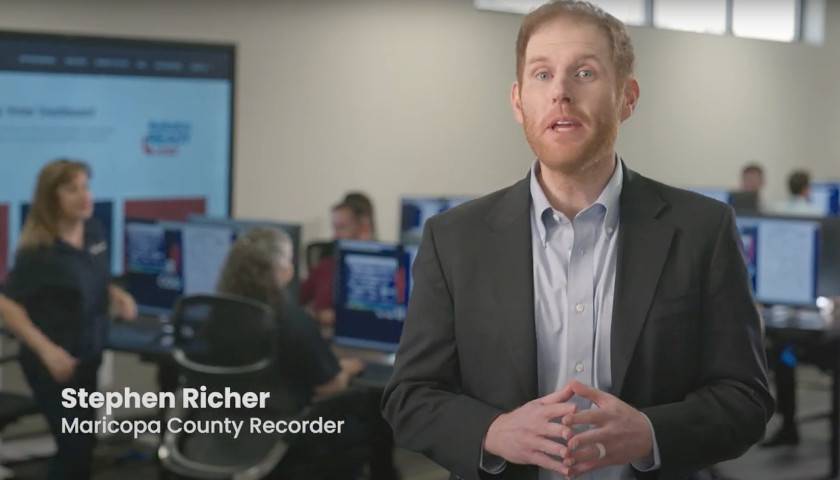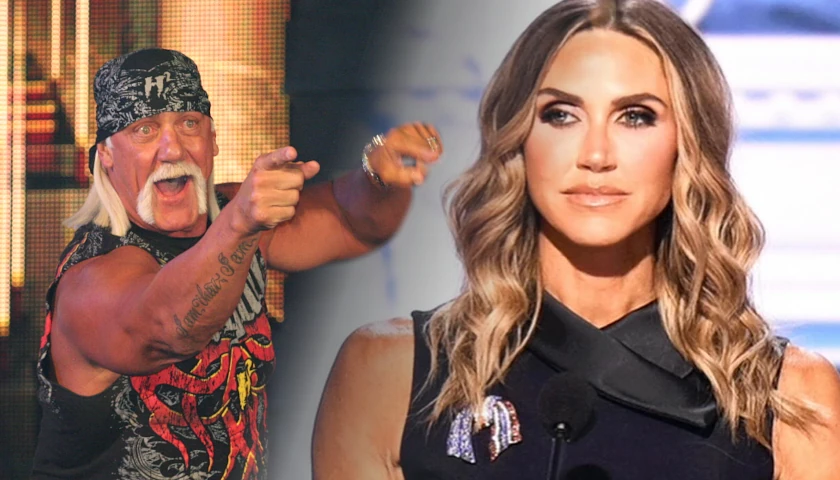Maricopa County Recorder Stephen Richer launched a taxpayer-funded ad campaign about voting featuring himself earlier this month.
The ads discuss the county’s voter dashboard, beballotready.vote, and assert that his office will clean up voter rolls. The ads were placed on broadcast TV, radio, and YouTube — including during conservative podcasts — Facebook, X, Instagram, and Reddit.
Jennifer Wright, who previously served as the Arizona Attorney General’s Office Election Integrity Unit civil attorney, told The Arizona Sun Times, “Arizona law has adopted what is known as the mini-Hatch Act, and taxpayer resources cannot be used to benefit a candidate or campaign. Here, Richer is using taxpayer resources ostensibly as voter outreach, however, unlike previous Maricopa voter outreach campaigns that used ‘Phil the Ballot’ — Richer has made his name and face a prominent part of the advertisements. Given use of his likeness is a huge departure from the previous Maricopa ad campaigns, it seems to me to at least violate the spirit of the law, if not the letter.”
A.R.S. 16-192 states that “public resources” may not be used to “influence an election.”
In one of the ads, Richer is featured stating, “Maricopa County, help keep our voter rolls up-to-date. Just visit, BeBallotReady.Vote.” That is the entire ad. In a press release announcing the ads, he claimed he has championed voter list maintenance.
“List maintenance has been a top priority since I took office, and our team at the Recorder’s Office uses various resources to update our records,” he said.
However, Richer is being targeted for defeat this year by election integrity activists, many of whom are upset that he ran on a platform of election integrity but has stonewalled their efforts to investigate suspected fraud in the 2020 and 2022 elections. The county has fought public records requests requesting access to ballots and related data and equipment, and after being sued, continued litigating their opposition in court.
Merissa Hamilton, co-founder of EZAZ, posted a comment on X after Richer announced the ad campaign.
“Don’t let Stephen fool you!” she said. “@stephen_richer helped block real security for our vote-by-mail system after campaigning against Prop 309 which would have required identification for early ballots. He also fought only allowing valid signatures to be used for reference. He teamed up with radical anti-police Marxists to block transparency and accountability in the signature review process.”
Hamilton also told The Sun Times, “When Stephen Richer promised to ‘make elections boring again,’ we must have missed the part where he was actually promising to be just as corrupt as his predecessor. Using tax dollars for self-promotion, including funding a digitally enhanced image of himself is a whole new low. The taxpayers deserve better.”
Other politicians have come under fire for similar ads. Three weeks ago, the U.S. House Committee on Ethics initiated an investigative subcommittee probe into allegations against Representative Sheila Cherfilus-McCormick (D-FL-20).
Insider Elections said, “The three advertisements from Cherfilus-McCormick’s office are notable because members rarely spend official dollars on TV ads (radio is much more common), but also because of how closely they resemble traditional campaign advertising.”
Like Richer’s ads, “[t]here’s no overt electioneering: no asking voters to cast their ballots for Cherfilus-McCormick, no mention of her opponents, no reminder of when the election takes place.”
The Public Trust Institute (PTI) filed a complaint with the U.S. Election Assistance Commission (EAC) in 2022 over ads warning of election disinformation that Democratic Colorado Secretary of State Jenna Griswold issued using taxpayer funding.
PTI asserted, “Griswold spent 2.8 million dollars in a no-bid contract to the Glover Park Group to boost her own profile in a television advertisement campaign. … The ad is clearly intended for campaign purposes to get out the vote and promote herself.”
The complaint added in detail, “The timing of the ads, frequency of the ads, the target demographics of the ads, and the fact that the ads focus on promoting Jenna Griswold, create a strong factual basis that the advertisement is supporting the candidate’s election and constitutes a contribution…”
There has been no public statement from the EAC about the complaint.
Google paused PSAs from Kentucky Attorney General Daniel Cameron, a Republican, in October, claiming his ads about human trafficking were “political advertising mid-campaign” due to Cameron being featured in them. The marketing firm hired by the office said, “On YouTube, we were just notified that the ads that had been running were flagged for being considered political advertising mid-campaign, due to the fact that the Attorney General is in the video assets.”
This isn’t the first time Richer was accused of using taxpayer resources to influence an election. He heads the lobbying group Arizona Association of County Recorders, where he pushed through a vote opposing a ballot measure, Proposition 309, that would strengthen the state’s existing voter-ID laws. He falsely claimed he had the unanimous support of other recorders and then posted on the county website a political message telling people how to vote on the ballot measure. The document was created by Maricopa County Recorder’s Office employee Cassidy Claridge during work hours in alleged violation of the same laws.
Richer also came under criticism for creating a PAC for Republican election fraud deniers shortly after being elected recorder. The PAC may violate ethics rules.
The Sun Times submitted a public records request to Richers’ office requesting information about the ad campaign and previous ad campaigns, but did not receive a response before press time.
– – –
Rachel Alexander is a reporter at The Arizona Sun Times and The Star News Network. Follow Rachel on X / Twitter. Email tips to [email protected].








